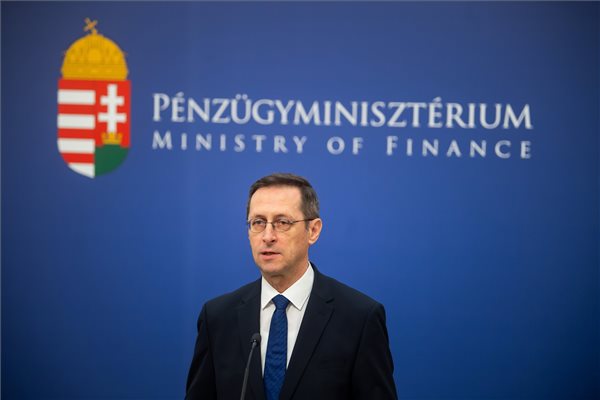In the challenging backdrop of war, energy sanctions, and a volatile global economic scenario, the Hungarian budget faced considerable strain throughout 2023.
The Finance Ministry’s recent flash report on the central sub-system of public finances, excluding local governments, highlights the government’s commitment to safeguarding pensions, family allowances, and managing public utility bills amid these adversities.
Despite the external pressures, the government’s primary objective for the year remains focused on deficit reduction and lowering public debt by fostering economic growth.
As of December, the budget closed with a deficit of 4,593.4 billion forints (EUR12.14B). This comprised a deficit of 4,293.3 billion forints (EUR12.13B) in the central budget, a surplus of 112.3 billion forints (EUR 296M) in the state’s earmarked funds, and a deficit of 412.3 billion forints (EUR 1.08B) in the social security funds.
Notably, the cash deficit in 2023 was lower than the previous year, totaling 4,672.1 billion forints (EUR 12.3B).
The fiscal landscape for 2023 involves one-off expenditures aimed at supporting long-term growth through the accumulation of public assets. Examples of such expenditures include the indirect state acquisition in Vodafone Zrt., Magyar Posta Biztosító Zrt., and Magyar Posta Életbiztosító Zrt (Hungarian Post Insurance pLc and Hungarian Post Life Insurance pLc).
Household overhead costs in 2023 reached 1,373.5 billion forints (EUR 3.6B), nearly doubled compared to the 699.2 billion forints (EUR 1.8B) disbursed for this purpose by the end of 2022.
Additionally, a total of 744.2 billion forints (EUR 1.9B) was spent on reimbursing national and suburban public transport services in 2023, marking an increase of 155.4 billion forints (EUR 409M) from 2022.
Beyond extraordinary expenses, the budget also pre-financed EU program expenditures in 2023. EU spending amounted to 2,812.2 billion forints (EUR 7.7B), while EU revenue reached 2,229.2 billion forints (EUR 5.8B).
In the realm of social benefits, 5759.9 billion forints (EUR 15.2B) were allocated for retirement benefits in 2023, and preventive healthcare received 2410.1 billion forints (EUR 6.3B) in government spending. Notably, tax and contribution revenues in 2023 saw an increase of 15.2 percent compared to the previous year, reflecting the resilience of the fiscal system in the face of external challenges.
Related article
Minister of Finance Addresses Economic Growth and Budget Stability
According to Mihály Varga, no changes in the financing plan are expected during the next five to six months.Continue reading
Via MTI; Featured Image: Pixabay

